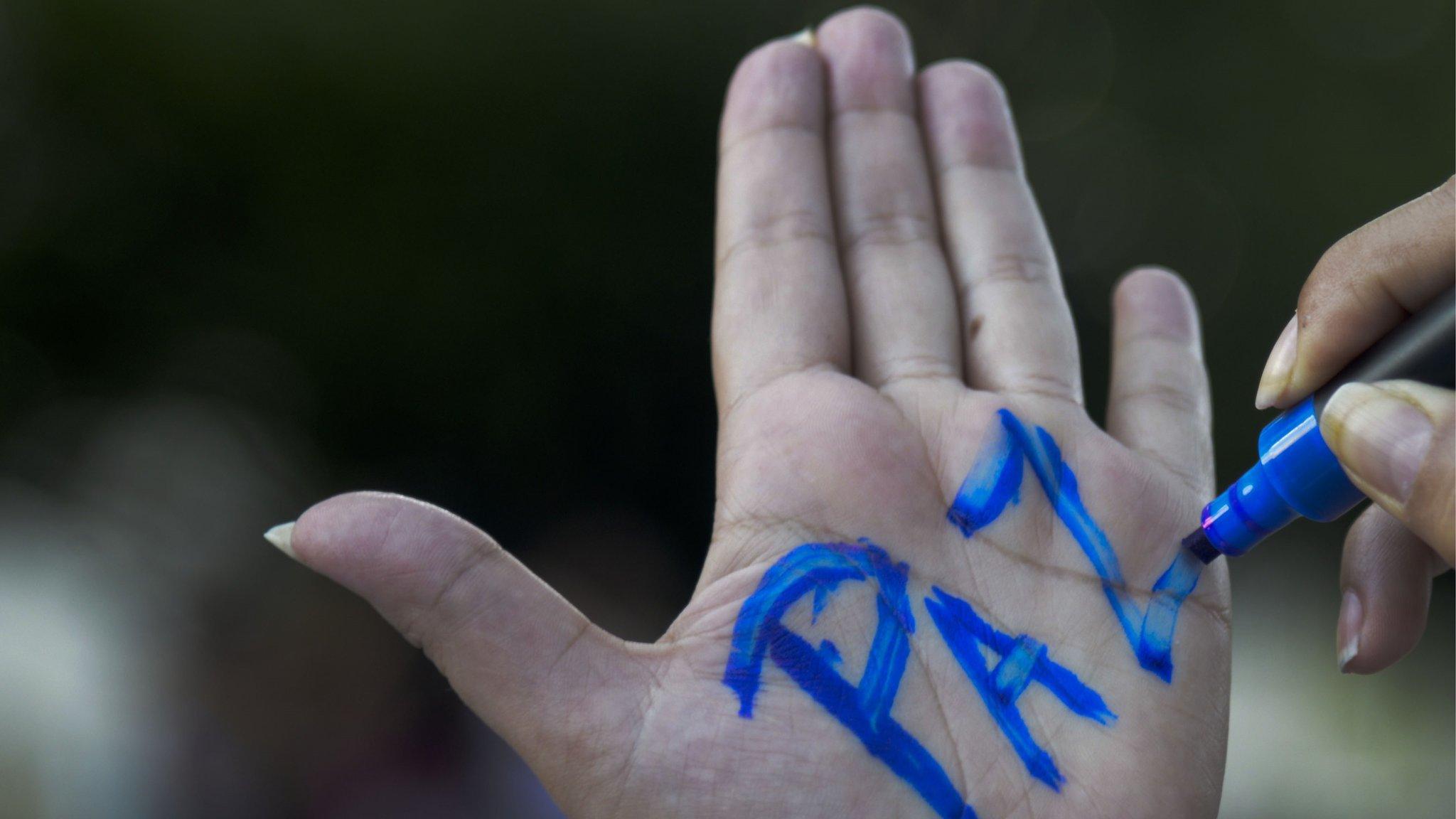Colombia: 'No blanket amnesty for Farc'
- Published
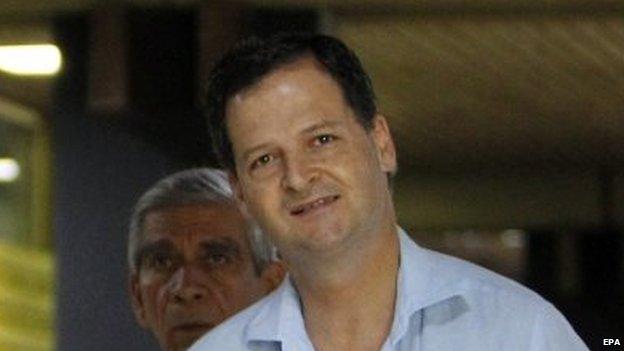
Sergio Jaramillo is part of the government team negotiating with Farc rebels in Havana
Colombia's High Commissioner for Peace Sergio Jaramillo has ruled out a blanket amnesty for members of Colombia's Farc rebel group.
Mr Jaramillo, who is part of the government team engaged in peace talks with the Farc in Havana, said that "the days when you could say that there'll be a blanket amnesty are over".
The two sides have reached agreement on three out of five topics at the talks.
The Marxist rebels have been fighting the government for more than 50 years.
The Colombian government negotiators and a delegation of Farc rebels started holding formal peace talks in November 2012 in the Cuban capital, Havana.

Colombia's armed conflict
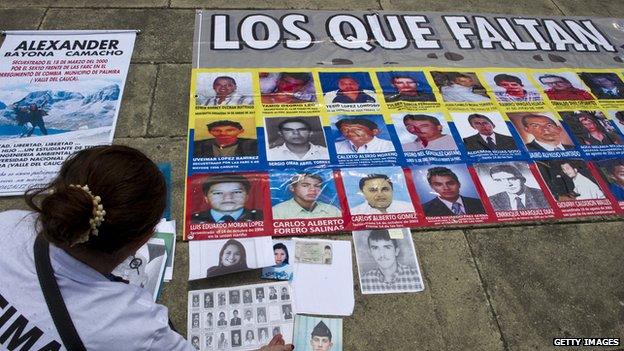
•An estimated 220,000 killed
•More than five million internally displaced
•More than seven million registered victims
•About 8,000 Farc rebels continue fighting
Sources: Unit for Attention and Reparation of Victims, Colombian government

Briefing journalists at the Colombian embassy in London, Mr Jaramillo acknowledged there had been stumbling blocks on the road to peace.
He said that a rebel attack in western Cauca province in April in which 11 soldiers were killed had been met with "strong reaction" in Colombia.
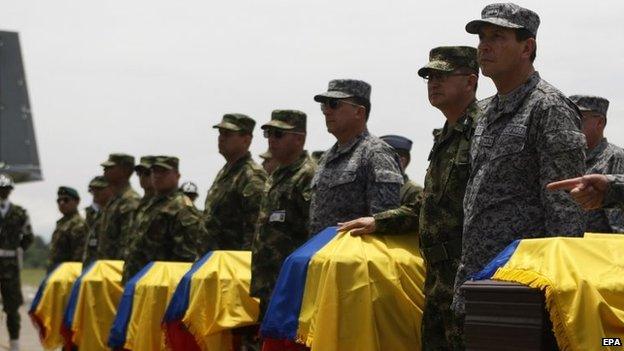
The death of 11 soldiers in a rebel attack in Cauca in April shocked Colombians
Mr Jaramillo said the attack had caused "disillusionment" among Colombians and prompted many to doubt the intentions of the Farc.
But he said that despite the tragic and terrible nature of the attack, it was key that the government negotiators persevere and "keep pushing".
He said that during the more than two years he had negotiated with the Farc in Havana he had got the feeling that the rebels had "taken on board that you need to take the victims seriously".
A total of 60 victims have travelled to Havana and spoken to both the Farc and the government negotiators about their experiences.
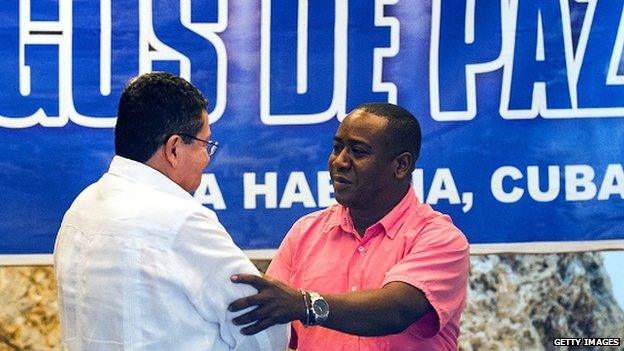
Victims of the armed conflict travelled to Havana to share their stories with the negotiators
Mr Jaramillo said crimes against humanity committed by the rebels, as well as those by state actors, would be investigated.
"You have to be prepared to recognise your own mistakes and your own responsibility," he said.
"If you're not prepared to acknowledge your own responsibility, you don't really have the moral authority to ask the other guys to do so."
He said it was key for the negotiators "to find the right balance between justice and peace" and while it would be "very, very difficult", he remained convinced it "would be possible to find a sensible solution".
Mr Jaramillo concluded that despite the current mistrust created by the deadly Farc attack in April, he was confident that if the two sides did reach an agreement a lot of people would pinch themselves and say: "I can't believe this happened in my lifetime because nobody had thought this was possible".

Timeline of the peace process
November 2012 - Formal peace talks begin in the Cuban capital Havana between the Colombian government and the Farc
May 2013 - A deal is reached on land reform, one of the most contentious issues. It calls for fair access to land, and rural development, two key causes of the conflict
November 2013 - The two sides agree on the political participation of the Farc should a peace deal be reached
May 2014 - Both parties pledge to eliminate all illicit drug production in Colombia
November 2014 - An army general, Ruben Dario Alzate, is kidnapped by the Farc. He is released two weeks later.
December 2014 - The Farc declares a unilateral ceasefire
March 2015 - Both sides agree to work together to remove landmines. Colombia is one of the most heavily mined countries in the world
April 2015 - Eleven soldiers are killed in a Farc attack in Cauca province
- Published8 May 2015
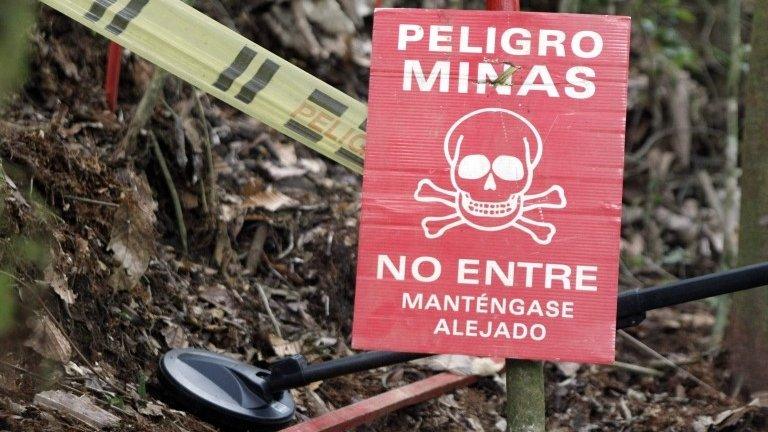
- Published24 September 2015
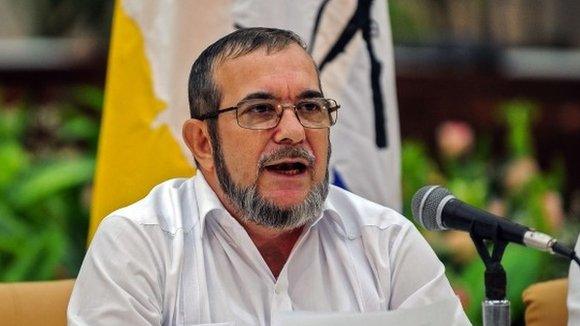
- Published31 October 2014
